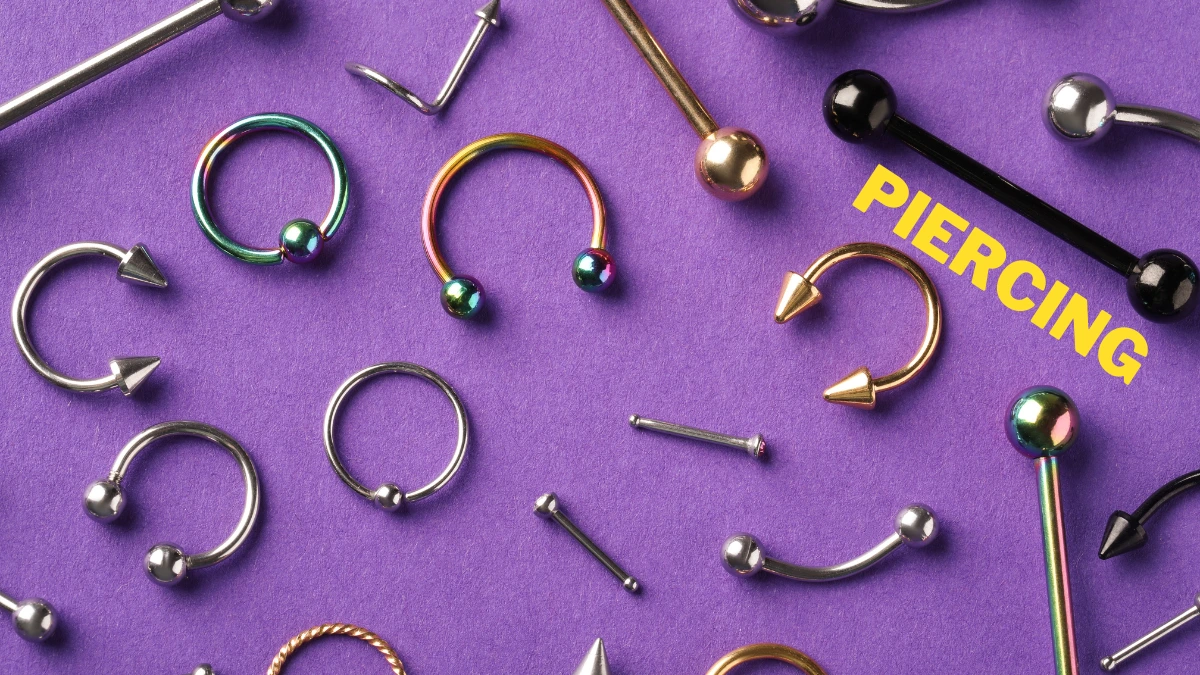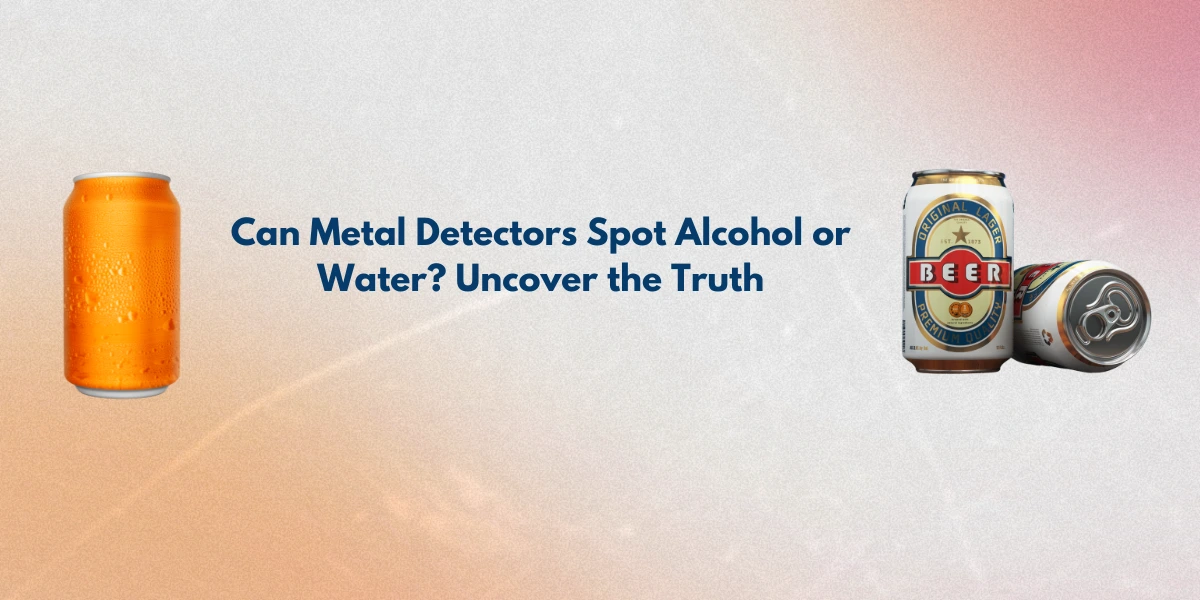Does Titanium Set Off Metal Detectors? Some Intersting Facts
Published: 9 Nov 2024
As an airport security officer, I have often encountered this question: “Does titanium set off metal detectors?” Many people ask this question because titanium has unique properties that differentiate it from other metals. Some people even declare their titanium piercings and other implants during security checks, especially at the airport.

In this article, we’ll explore whether metal detectors detect titanium, how it behaves in airport scanners, and what people with titanium implants or piercings can expect at security.
Can a Metal Detector detect Titanium?
This question can not be answered with a Yes or No. Normally, there are fewer chances that a metal detector will detect titanium as it detects metals like steel and aluminum.
- Low Conductivity Reduces Detection Chances: Titanium has low electrical conductivity, generating a weaker electromagnetic field compared to metals like steel or aluminum, making it less likely to trigger standard metal detectors.
- Standard Detectors May Miss It: Common detectors in places like shopping malls are less sensitive to low-conductivity metals like titanium.
- Advanced Detectors Can Spot Titanium: High-security systems, such as those at airports, are designed to detect even low-conductivity metals, increasing the chances of titanium being identified.
- Size and Amount Matter: Larger titanium objects or implants are more likely to be detected than small items.
- Not Entirely Invisible: While titanium might evade basic detectors, it’s not completely undetectable, especially with modern detection technology.
Pro Tip: Do not use larger or thicker pieces of jewelry, the smaller and lighter titanium pieces are less likely to trigger metal detectors.
Will a Metal Detector Detect Titanium?
Whether a metal detector will detect titanium depends on a few key factors:
- Type of Metal Detector: Typically basic detectors in public spaces will fail to detect small titanium implants, but airports and similar places use better detectors that may identify sizable implants and pieces of jewelry.
- Size and Amount of Titanium: Delicate accessories such as earrings might not be detected but bigger elements like replacements or multiple pieces of titanium ornaments raise the probability of an interaction with detectors.
- Detector Sensitivity: High sensitivity detectors especially at the airport can even pick raw metals such as titanium with a lower conductivity than stainless steel and thus have a higher tendency to trigger the alarm.
Will Titanium Implants Trigger Airport Security?
- Titanium implants can sometimes trigger metal detectors, especially high-sensitivity ones.
- Most modern airports use body scanners that can identify implants without alarms.
- The size and location of the titanium implant determine its detectability.
- Informing security personnel and carrying medical documentation can help.
- If detected, a quick secondary screening ensures smooth clearance.
What is titanium?
Titanium is a metal. It is strong, lighter in weight, extremely durable and highly resistant to corrosion. Because of these qualities, titanium is widely used in aerospace engineering, medical and industrial fields. It is mostly applicable in surgeries like hip replacements, jewelry and parts of body accessories like piercing. They also use it for manufacturing aircraft parts, watches and eyeglasses among many others.
Does Titanium Set Off Airport Scanners?
Titanium can trigger airport scanners because such scanners are supposed to identify different metals on the body. Alerts can be raised if you have some form of titanium including a hip replacement or knee.” It is easier though if these security officers are informed beforehand. Sometimes, they literally use a scanner to detect it or do a couple of swiping with their hands for a check. This extra step is actually normal for people using implants and it does not usually take a lot of time.
Will a Titanium Hip Set Off a Metal Detector?
Yes, a titanium hip replacement is more likely to set off a metal detector. Even though titanium is less conductive, the size of a hip implant increases its chances of being detected by sensitive security systems. For travelers with titanium implants, carrying medical documentation can be helpful. However, even with documentation, many security teams will still conduct a follow-up scan or pat-down to confirm the source of the alarm.
For anyone wondering, “Can I fly with titanium in my body?” the answer is absolutely yes! Just be aware that the titanium may require a brief, additional screening at the security checkpoint.
Flying with Titanium Piercings and Implants
In most cases, small titanium studs like nose piercings or jewelry normally do not set off detectors since the material is hardly magnetic. However, other piercings or larger-sized titanium jewelry could be found, particularly in high-security environments such as airports.
For example, if they have metal implants, the airport security may use handheld detectors or pat-downs to check metal alerts, so having the informed staff is helpful when that occurs.
Interesting Facts About Titanium and Metal Detectors
- Titanium’s low conductivity makes it harder to detect in metal detectors.
- Its non-magnetic nature means it won’t interact with magnetic fields in detectors.
- Advanced high-sensitivity detectors, like those at airports, can identify titanium.
- Titanium implants may occasionally set off metal detector alarms.
- Body scanners are better at identifying titanium than traditional detectors.
- Titanium is widely used in medical implants due to its strength and biocompatibility.
- Small titanium items, like jewelry, may pass undetected in lower-sensitivity detectors.
- Metal detector alarms triggered by titanium implants can be cleared with medical proof.
- Titanium’s use in aerospace and sports gear shows its versatility beyond implants.
- Even with its metal properties, titanium is often overlooked by standard detectors.
Frequently Asked Questions
The following questions are frequently asked:
Can I Fly with Titanium in My Body?
- Yes, flying with titanium implants is completely safe.
- Titanium does not interfere with aviation systems or cabin pressure.
- Metal detectors may detect your implant, but body scanners handle it effectively.
- Always carry a doctor’s note or medical card explaining your titanium implant.
- Notify security staff about your implant to ensure a smooth screening process.
Will Titanium Rods Set Off Metal Detectors?
- Yes: High-sensitivity detectors, especially in airports, may detect titanium rods.
- No: Low-sensitivity detectors might overlook titanium due to its low conductivity.
- Informing security personnel beforehand can help avoid unnecessary delays.
Do Titanium Rods in the Back Set Off Metal Detectors?
- Titanium is non-magnetic and has low conductivity, making it less likely to trigger metal detectors.
- Modern detectors in high-security areas, like airports, can detect titanium rods.
- The sensitivity of the detector plays a key role; low-sensitivity detectors might not detect it.
- Full-body scanners often identify titanium implants without setting off alarms.
- Carry medical documentation to explain your implant if it triggers an alarm.
Final Thoughts
So, does titanium set off metal detectors? Generally, single pieces of titanium jewelry or even tiny pieces of titanium like a single piercing will not set off normal detectors. Yet, if a patient received a bigger implant, such as a hip replacement or multiple titanium items, his or her probability of getting caught is higher particularly if in an airport and similar areas. Identifying how titanium behaves in relation to metal detectors will make your traveling process easier especially if you are traveling with implants or several piercings.
Flying with titanium is generally hassle-free, but understanding what to expect at security checkpoints will ensure that you’re prepared and informed. Safe travels!

- Be Respectful
- Stay Relevant
- Stay Positive
- True Feedback
- Encourage Discussion
- Avoid Spamming
- No Fake News
- Don't Copy-Paste
- No Personal Attacks

- Be Respectful
- Stay Relevant
- Stay Positive
- True Feedback
- Encourage Discussion
- Avoid Spamming
- No Fake News
- Don't Copy-Paste
- No Personal Attacks





